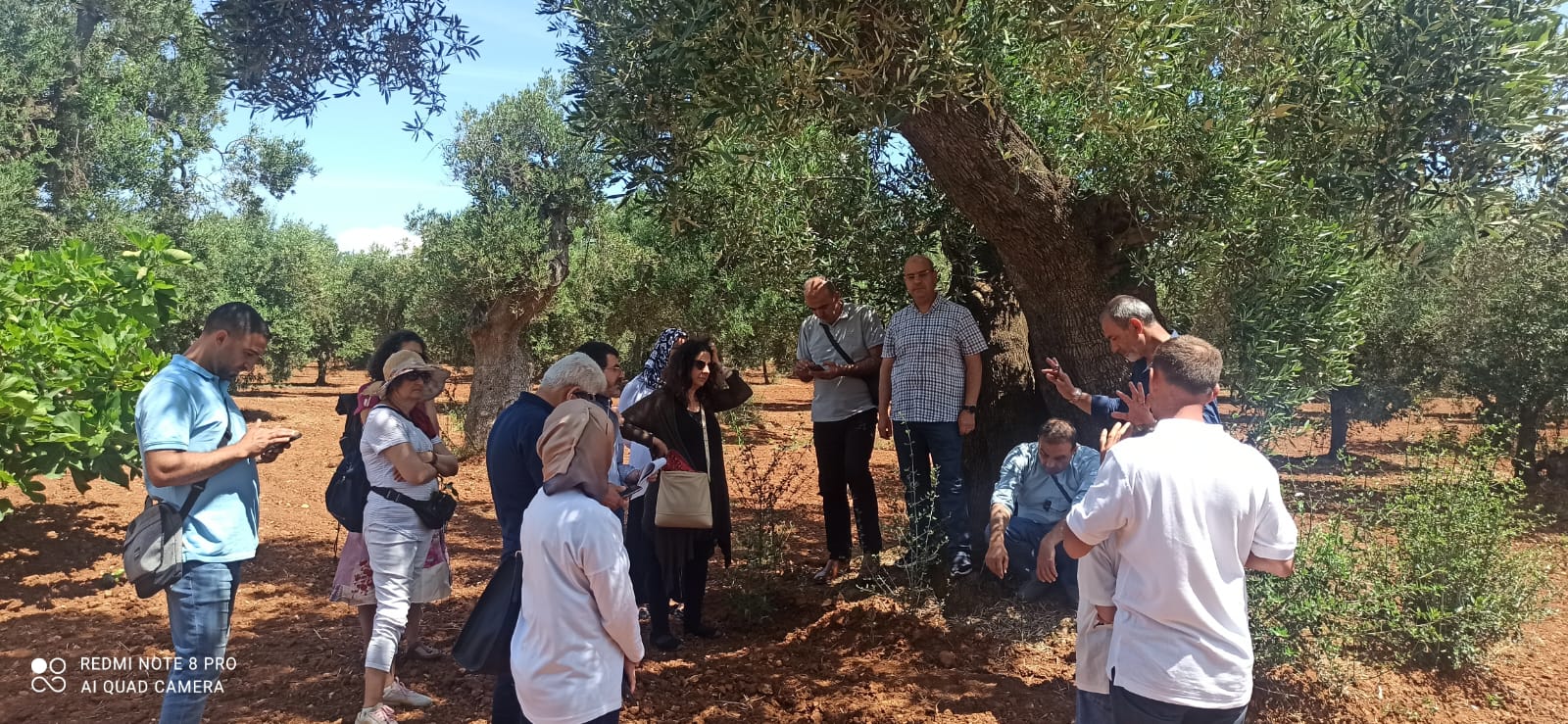A study tour in Italy gives Jordanian and Palestinian olive oil producers food for thought

A group of Palestinian and Jordanian olive producers and government representatives visited Apulia, Italy's leading olive oil producing region, to see what it takes – investments, innovations, cooperation between the public and private sectors – to build a booming industry.
The delegation met with olive oil producers – both large firms and small family-run companies – technical experts, local authorities and olive oil cooperatives. They toured modern and ancient olive groves and mills and saw different cultivation methods and advanced technologies in irrigation and mechanization.
The Food and Agriculture Organization of the United Nations (FAO) and the European Bank for Reconstruction and Development (EBRD) organized the visit.
It is part of a broader FAO and EBRD initiative supporting more sustainable, efficient and profitable olive oil sectors in Jordan, the West Bank and Gaza, Morocco and Tunisia. In Jordan, these efforts are co-financed by the EBRD and the European Union, and in the West Bank and Gaza by the Netherlands through the EBRD's Multi-Donor Account.
Learning how their Italian counterparts have seized opportunities to advance the sector and produce top notch, internationally recognized olive oils was particularly eye-opening.
"My perspective on the relationship between the quality and quantity of olive oil has changed significantly," said Mohamed Abu Ali, a small producer and mill owner from Jerusalem. "The milling process, especially cold milling, plays a crucial role in producing high-quality extra virgin olive oil."
Innovations and investments
A well-organized supply chain is one of the reasons behind Italy's olive oil sector's success.
The group met with Italian cooperatives and consortiums for a better understanding of the different types of support and services offered to members, from quality controls and traceability systems to packaging, storage, certification and marketing. Oliveti d'Italia, Italy's biggest consortium of producer organizations, emphasized knowledge-sharing and the promotion of high-quality Italian extra virgin olive oil to a wider audience.
The study tour showcased various cultivation practices, including traditional, intensive and super intensive methods. It also touched on how the region is dealing with water scarcity and other climate-related challenges – issues that are particularly relevant to the Jordanian and Palestinian producers. For example, the delegation visited a large farm using a water deficit-controlled method for irrigation, which improves water use efficiency.
Haifa Omar, an engineer from the Palestinian Ministry of Agriculture, was impressed by the advanced irrigation systems used in Italy and how they help minimize alternate bearing – the tendency of olive trees to produce significantly different yields in alternate years.
The production of olive oil generates large amounts of residue, like wastewater and pomace, which can be problematic, especially for larger, more modern mills.
The family-run Agrolio olive oil company is championing sustainable innovations by using residues from its olive oil pruning and milling to produce biogas. The biogas powers the company's infrastructure and mill, with the surplus electricity sold as renewable energy. The final residues from the renewable energy production are then used as organic fertilizers.
For Mahmoud Al Omari, a mill owner representing Jordan Olive Oil Mills Syndicate, it would be worthwhile exploring similar investment opportunities in Jordan and Palestine, but to make it a reality "we need a supportive policy environment."
Healthy trees, healthy sector
Good phytosanitary systems are vital for keeping olive groves healthy and disease free. The group learned how the region is working to detect, prevent and respond to Xylella fastidiosa, a deadly insect-borne bacteria that can decimate olive groves and livelihoods.
They also saw how the region has built a robust agritourism industry around its olive groves and world-renowned olive oil products, helping to breathe new life into the local economy. Centuries-old olive groves are not only protected as an integral part of the region's natural beauty and cultural heritage, but they also absorb and store carbon.
The delegates are now eager to share their knowledge from the visit with their peers back home, adapting what they have learned to help their olive oil industries flourish.
